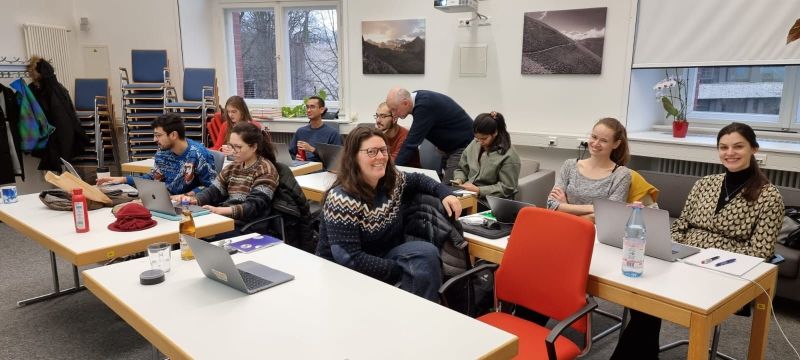Landscape Evolution Workshop in Potsdam: A Week of Exploring Geoscientific Research with Fastscape
8 Feb 2023

ESRs Caroline Fenske and Amanda Wild together with their supervisor Jean Braun organised an exciting one-week long course on the application of landscape evolution models, specifically Fastscape, in geoscientific research. The workshop took place in Potsdam from January 30th to February 3rd and aimed to explore research questions spanning from source to sink.
The workshop commenced with Caroline and Amanda guiding participants through an in-depth review of Xarray and Fastscape within python notebooks. These sessions served as an excellent foundation for the subsequent discussions and activities. Their fellow ESRs gained valuable insights into the practical aspects of using Fastscape and Xarray for their research.
Furthermore, Caroline and Amanda presented their own Fastscape additions during the workshop. Caroline delved into the fascinating world of duricrust/regolith modeling, sharing insightful case studies. Amanda, on the other hand, focused on grain size modeling within Fastscape, showcasing its potential through engaging case studies.
As the workshop progressed, the final was dedicated to Jean's expertise in academic paper writing and reviewing. Participants had the opportunity to receive valuable guidance from Jean and engage in hands-on discussions centered around academic papers. Moreover, a Fastscape case study was presented and was revolving around the Pyrenees region, which the ESRs experienced during the Dragonstone expedition.
While the workshop predominantly emphasized the transfer zone, particularly the foreland basin, it also touched upon available packages and tools for modeling in the source and sink. This comprehensive approach enabled participants to broaden their understanding of landscape evolution and its interconnectedness across different geological components.
Moreover, each participating Early Stage Researcher (ESR) had the opportunity to remind the group of their research focus and present a potential question that can be addressed using a landscape evolution model. This platform facilitated stimulating discussions and collaboration among ESRs, enabling the group to explore various research avenues.



